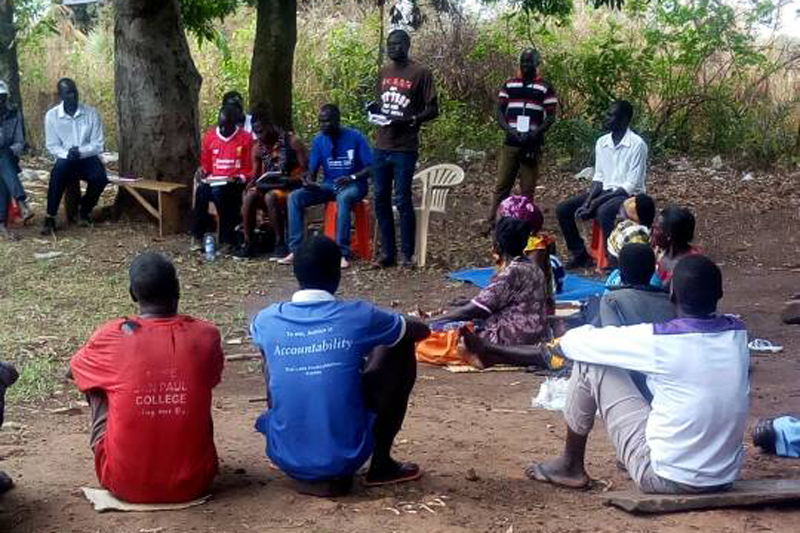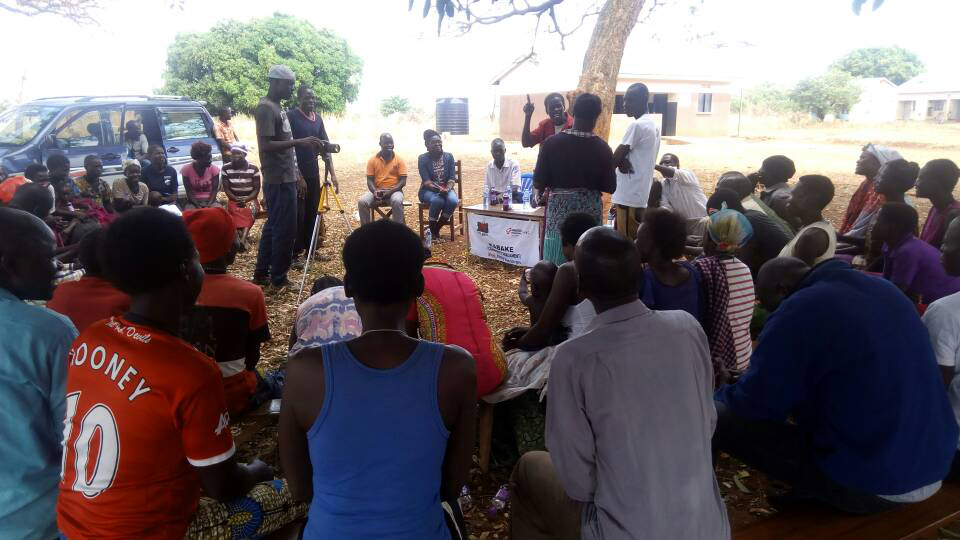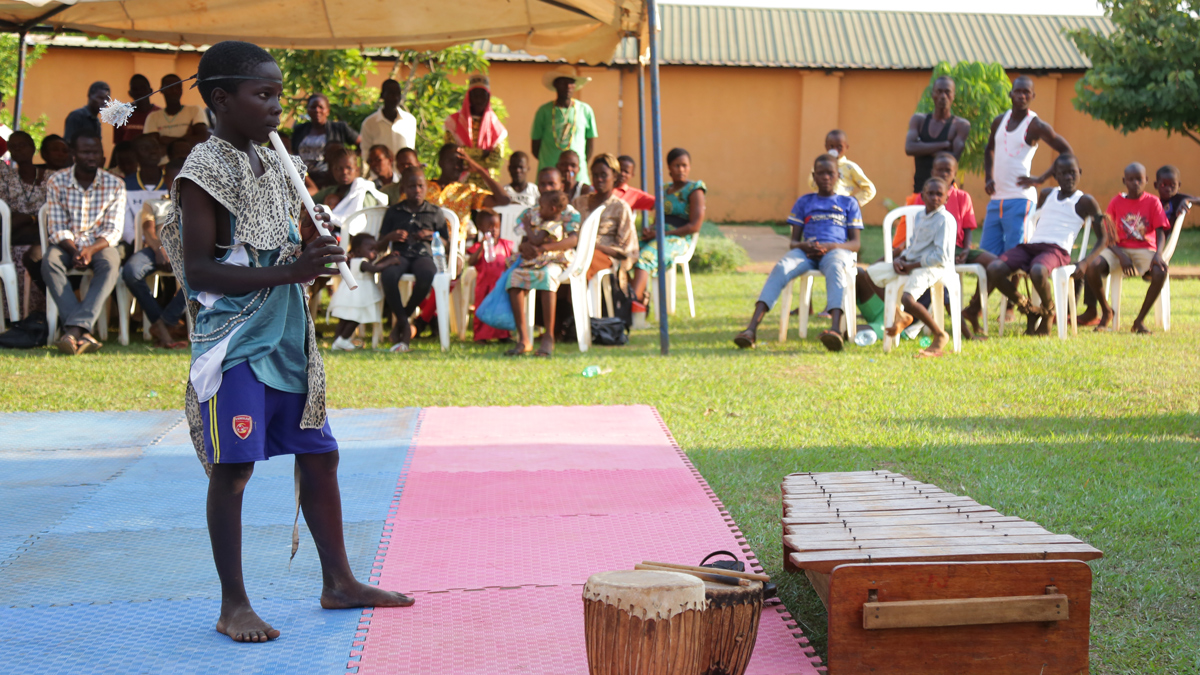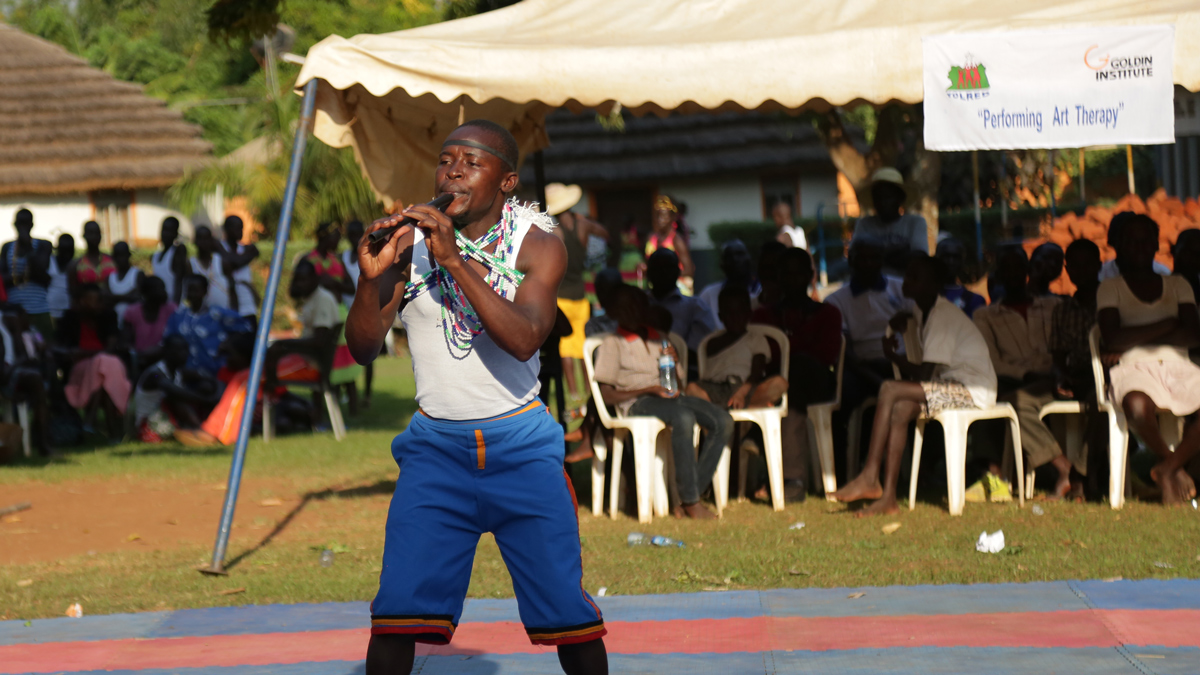In 2012 the Goldin Institute conducted research to understand and improve the lives of former child soldiers (FCS). In collaboration with former child soldiers, parents of former child soldiers, community leaders, district leaders, non-governmental organizations and opinion leaders, the Goldin Institute worked to engage those impacted by the Northern Uganda civil war to obtain an in-depth understanding of the societal, familial and public framework in place for former child soldiers.
The research was set up as a series of conversations amongst key stakeholders. Most significantly, FCS were given the role of interviewer, asking questions of other FCS about their experience with reintegration efforts following the war. The roles then reversed and the interviewer became the interviewee; concurrently conducting and contributing to the research. This framework allowed for FCS to share their experiences with those who are able to relate. The framework was also useful in breaking down barriers between FCS. FCS who were once forced to fight against one another were now in a position of relying on each other as an ad hoc support group.
The research revealed several key challenges FCS faced collectively upon their return from captivity. Specifically, FCS experienced sustained psychological trauma, community stigmatization and disillusionment with government support services.
Reinsertion is a child's return from captivity and reunification with family. Reintegration is a child's return from captivity, reunification with family, treatment and mitigation of mental and physical trauma and the development of a livelihood and contribution to society."
The study also found that reintegration must be distinguished from reinsertion for all parties involved. Reinsertion is a child's return from captivity and reunification with family. Reintegration is a child's return from captivity, reunification with family, treatment and mitigation of mental and physical trauma and the development of a livelihood and contribution to society. The use of the term reintegration advances the idea of "working with" former child soldiers as they re-build their lives; it also minimizes the idea that private and public sector agencies are "working for" former child soldiers.
The widespread challenges amongst the FCS revealed the need for a collaborative effort amongst all sectors to effectively improve the lives of FCS. The current government provisions and interventions frequently failed to address the personal experiences and needs of war survivors, particularly those of FCS. The study not only revealed the perilous situation that FCS are in upon return from captivity but also developed the mission and framework of the National Partnership in Uganda as a means to address the needs of FCS.
The National Partnership in Uganda leverages the idea that sustainable recovery and peace within Northern Uganda can be achieved through the recognition of the unique experiences of FCS by government, civil society organizations and non-governmental organizations. The National Partnership will function as an effective national mechanism and a link and entry point for regional and international engagements towards prevention and reintegration of FCS. The National Partnership should also play a key role in developing a database for all FCS in the country and championing their cause through policy formulation, appropriate program recommendation and design and research. The National Partnership continues to evolve and grow, serving as a model for other countries grappling with reintegration of former child soldiers.
To that end, this summer, the Goldin Institute will be coordinating efforts to bring our colleagues in Colombia together with our associates in Uganda, so that best practices can be shared on effective ways to bring about reconcilation within communities and reintegration to former combatants. To view the full report containing photos and research on the creation of the regional platform, click on this link.




